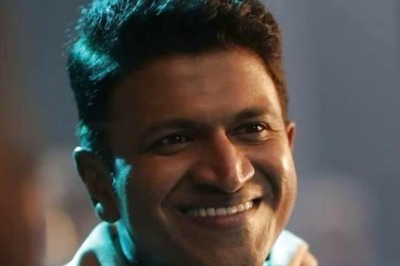
views
Cataracts affect millions all over the world, but the key to prevention and treatment is knowledge. It’s time all of us understand that cloudy or blurred vision, faded colours and difficulty seeing at night is a sign of a cataract forming.
Dr Sandeep Buttan, Technical Lead at Eye Health & Health System Strengthening, Sightsavers India, says, “It is the ‘age related changes’ in the lens inside the eyes, which gradually reduces the vision. Begins with some difficulty in seeing clearly for distance but may soon affect all aspects of daily living. May affect the two eyes asymmetrically so the persona may feel that they can see well even when one eye has significant cataract, but the other eye is less advanced.”
Dr Buttan adds, “Unoperated cataract is the leading cause for avoidable blindness in India. Can affect any one but mostly seen in elderly (more than 50 years). Women and other marginalized groups may needlessly remain blind due to lack of access to services and low level of awareness.”
Points to Ponder
- Some factors that may increase the chances of getting cataract have been identified – Smoking, uncontrolled diabetes, prolonged exposure to sunlight, certain medications (steroids etc.).
- Cataract surgery can restore the lost vision in majority of cases if done in time.
Barriers to uptake of care
- Lack of awareness of progression pattern- they don’t feel that they will need any treatment till it gets too bad. With the advancements in microsurgical techniques, there is no need to wait till the cataract ‘matures’. Early surgery is in fact recommended.
- Fear of surgery- some poor experience of a community member may deter all not to take up the service. If done by experienced surgeons in standard setups, the procedure is highly effective and completely safe.
- Women may need someone to accompany them for approaching the services and get treated. The surgery may be performed as a daycare procedure or maximum a day’s admission may be needed.
- Financial barriers – direct or indirect cost of the care may be beyond the means of the individual or family. They are unaware about various government schemes e.g., Ayushman Bharat and other state supported health insurance schemes, that support free surgeries at very good hospitals.
Let’s make it a point to encourage regular eye exams for early detection. Share information within your community, organize educational events, and emphasize the importance of eye health. Encourage loved ones to protect their eyes from harmful UV rays with sunglasses and hats. Remember, early intervention can restore sight and transform lives. By fostering community awareness, we can ensure brighter futures for all affected by cataracts.

















Comments
0 comment